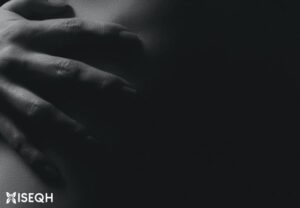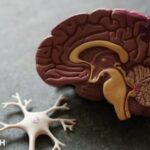
Introduction
Eating is a fundamental aspect of our lives. Yet, it’s more than just nourishing our bodies with essential vitamins and minerals. It’s also about pleasure and enjoyment. Therefore, happiness is just as crucial as nutrition regarding our food choices. This is where vitamin P comes in.
Vitamin P, also known as the pleasure vitamin, is a term used to describe the pleasure and satisfaction we get from eating. It’s not a natural vitamin but rather a metaphor for food’s emotional and psychological benefits. Just as we need vitamins and minerals to maintain our physical health, we also need vitamin P to maintain our emotional and psychological well-being.
Mindful eating: When we take the time to savour our food, we are more likely to eat mindfully, which is essential for maintaining a healthy weight and preventing overeating. Eating mindfully also helps us to be more aware of our body’s hunger and fullness cues.
Some of the benefits of vitamin P include:
Positive associations with food: When we eat foods we enjoy, we are more likely to view them as a treat or a reward rather than as something to be avoided. This is important for maintaining a healthy relationship with food, as it helps to prevent the development of disordered eating patterns.
Improved mood and reduced stress: Studies have shown that when we eat foods we enjoy, we release endorphins, chemicals that make us feel good. Additionally, when we take the time to savor our food, we can relax and enjoy the moment, which can help reduce stress and improve our overall well-being.
Increased satisfaction and enjoyment: Eating foods we enjoy can increase our sense of pleasure and happiness, making meal times more enjoyable and pleasurable.
Promotes healthy eating: Eating foods that are both nutritious and delicious, rather than just nutritious, can encourage people to make healthier food choices, which can ultimately lead to better health outcomes.
There are many reasons why pleasure matters regarding what we eat. One of the most important is that it helps us to enjoy our food and to savour the flavours and textures. When we take the time to savour our food, we are more likely to eat mindfully, which is essential for maintaining a healthy weight and preventing overeating. Eating mindfully also helps us to be more aware of our body’s hunger and fullness cues, which is important for preventing weight gain.
Another reason pleasure matters when it comes to what we eat is that it helps us form positive associations with food. When we eat foods we enjoy, we are more likely to view them as a treat or a reward rather than as something to be avoided. This is important for maintaining a healthy relationship with food, as it helps to prevent the development of disordered eating patterns.
Pleasure also matters when it comes to our food choices because it helps to improve our mood and reduce stress. Studies have shown that when we eat foods we enjoy, we release endorphins, chemicals that make us feel good. Additionally, when we take the time to savor our food, we can relax and enjoy the moment, which can help reduce stress and improve our overall well-being.
The psychology behind eating for pleasure is complex and multifaceted. However, here are a few key factors that contribute to the happiness we experience when we eat:
Taste and texture: Our sense of taste and texture play a big role in our enjoyment of food. We experience pleasure when we taste sweet, salty, and savory flavors, and when we encounter different textures, such as crunchy, chewy, and creamy.
Smell: The sense of smell is closely tied to our understanding of taste, and the aroma of food can significantly influence our enjoyment of it. The smell of food can trigger memories and emotions, which can further enhance our pleasure.
Social and cultural factors: Eating is often a social activity, and sharing meals with others can add to our pleasure. Additionally, cultural and familial traditions surrounding food can contribute to our enjoyment.
Emotional and psychological factors: Food can provide comfort and pleasure in times of stress, anxiety, or sadness. Certain foods can also be associated with positive memories, enhancing our satisfaction.
Dopamine: Dopamine is a neurotransmitter that is associated with pleasure and reward. When we eat, dopamine levels in the brain increase, which can contribute to the happiness we experience.
Hormones: Hormones such as ghrelin and Leptin play a role in regulating our hunger and fullness cues. Ghrelin, a hormone that increases hunger and promotes the pleasure of eating, and Leptin a hormone that suppresses hunger and promotes the pleasure of satiety.
It’s important to note that while eating for pleasure can be a positive experience, it can also lead to disordered eating patterns and negative consequences if not balanced with healthy eating habits. Therefore, finding a balance between enjoying food and maintaining a healthy diet is essential.
When it comes to getting your vitamin P, it’s essential to focus on foods you enjoy rather than foods you think you should be eating. This means choosing both nutritious and delicious foods rather than just nutritious ones. Some examples of foods that can provide a boost of vitamin P include:
Fresh fruits and vegetables: These foods are packed with vitamins, minerals, flavor, and texture. They are also a great source of fiber, which can help to keep you feeling full and satisfied.
Whole grains: Whole grains, such as quinoa, brown rice, and whole wheat bread, are a great source of vitamins and minerals, as well as fiber. They also provide a satisfying chew and a nutty or earthy flavor.
Lean protein: Foods such as fish, chicken, and tofu are excellent sources of lean protein, which can help to keep you feeling full and satisfied. They also provide a variety of flavors and textures, which can help to keep meals interesting.
Nuts and seeds: These foods are a great source of healthy fats, protein, and fiber. They also provide a satisfying crunch and a variety of flavors.
Dark chocolate: A small piece of high-quality dark chocolate can boost pleasure, satisfaction, and antioxidants.
It’s also important to remember that pleasure only sometimes comes from food. Exercise, spending time with loved ones, and reading a good book can also boost vitamin P.
In conclusion, pleasure matters when it comes to what we eat. Vitamin P, also known as the pleasure vitamin, is a term used to describe the pleasure and satisfaction we get from eating.








